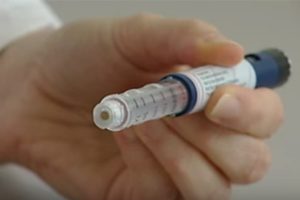
NUMC Concern Over Possible Reused Insulin Pens. Nassau University Medical Center (NUMC) has expressed concern over possible reuse of insulin pens in more than one patient and said yesterday it will be sending letters to as many as 185 diabetes patients who might be victims of such medical malpractice The letters will urge patients to […]

NUMC Concern Over Possible Reused Insulin Pens. Nassau University Medical Center (NUMC) has expressed concern over possible reuse of insulin pens in more than one patient and said yesterday it will be sending letters to as many as 185 diabetes patients who might be victims of such medical malpractice The letters will urge patients to be tested for hepatitis C, hepatitis B, and HIV. The hospital said it was still not clear whether an insulin pen—a pre-filled syringe meant to be used in a single patient to dispense insulin was used in more than one patient and Dr. Steven Walerstein, the hospital’s medical director, said there were no reports of any resulting infection.
Arthur Gianelli, NUMC’s chief executive, said nurses reported hearing about a possible syringe reuse and NUMC opted to err on the side of caution. “We don’t know if it actually happened, but there was enough hearsay to conclude it might have happened,” Gianelli said. “We decided we have to do the best we can to protect people’s health.” NUMC said it removed all insulin pens and notified the state Department of Health, which was on-site yesterday investigating the potential problem.
Because the single use insulin pens are designed for use by one patient, they are widely considered safer than using syringes with multidose vials. The devices were introduced at NUMC on November 26 following intensive staff education on the pens’ use.
The hospital said only those patients known to have ever used the Lantus SoloSTAR and NovoLog FlexPen from November 26 to May 5 would be notified to come to the NUMC for a free blood test and follow-up. Patients call 516-296-4333 for screening and counseling. Diabetic patients who have not used the pens are not considered at risk, the hospital said. In the meantime, Walerstein said the hospital has reverted to multidose vials for delivering insulin.
According to Walerstein and other hospital officials, a nurse on the medical intensive care unit reported a suspicion—about a month ago—that insulin from one patient’s insulin pen was withdrawn into another patient’s syringe. When interviewed, all the nurses said they knew of no such practice. The hospital’s quality control team interviewed nurses on other floors and some admitted to having heard of the practice; however, none had direct knowledge of pens reused in multiple patients.
When syringe pens are reused, it is possible for drops of blood containing viruses to be transmitted from one patient to another via the insulin pen’s syringe. Walerstein said there were no reports that had occurred. After attaching a needle, the user adjusts the proper dose on a dial and then pushes the plunger to inject the medicine. Each cartridge typically holds a 28-day supply of insulin before it is discarded; needles are disposed following each use.
In November, the state health department announced Dix Hills Doctor, Dr. Harvey Finkelstein, infected at least one patient three years earlier when he delivered medication using shoddy techniques and a multidose vials. Earlier this year, Dr. E. Jacob Simhaee, a Manhasset-based obstetrician-gynecologist admitted to reusing syringes when administering flu shots to at least 36 patients last fall. The state initiated its investigation of Simhaee’s practice in December following a complaint filed with the Nassau County Department of Health.
The personal injury attorneys at Parker Waichman LLP offer free, no-obligation case evaluations. For more information, fill out our online contact form or call 1-800-YOURLAWYER (1-800-968-7529).


